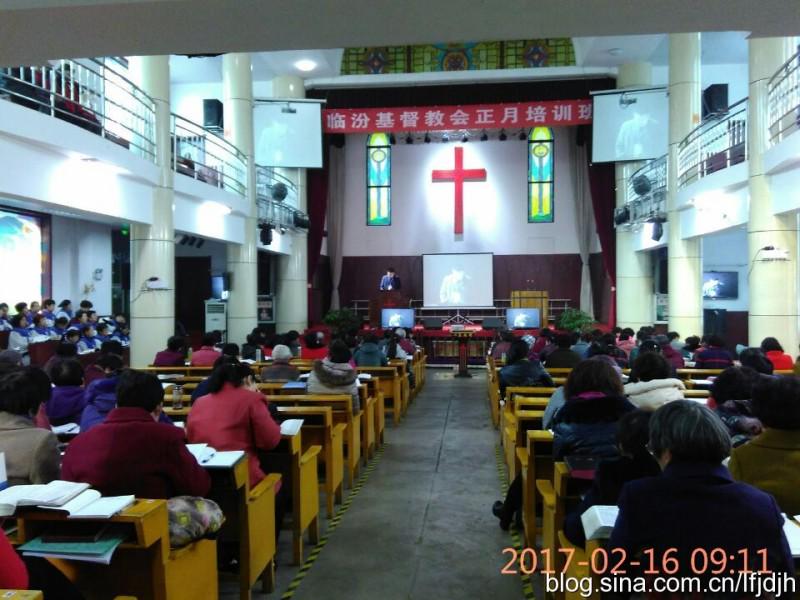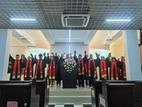Rev. Geng pastors a church in Linfen, a southern city in Shanxi Province (northern China). Before serving in Shanxi, she and her husband nurtured Christians in Qinghai for some time after graduation from a theological seminary.
The gospel once thrived in the city. The famous Hoste Schools and Shanxi Bible Institute in Hongtong were established by the China Inland Mission in Hongtong, a county in Linfen, and cultivated renowned Chinese church leaders like Xi Sheng Mo (also called Pastor Hsi), Yang Shaotang, and Zhang Wujian.
After reform and opening up, the church in Linfen was reopened. However, it was greatly weakened due to internal division.
There are about 200 new converts every year in Linfen. The church attendance in the downtown area remains almost the same, but it has greatly declined in rural regions. Most of the villagers migrate to large cities for jobs, leaving elderly parents at home with their children.
Local rural churches experienced revivals in the 1980s and 1990s, but are desolate at present. Some of the core church staff also left the church for paid work.
In the early 1980s, the number of the rural congregants increased rapidly. At that time, there was no preacher and most believers could not read. "The qualification of a pastor was the ability to read the Bible. Then God performed many wonders and miraculous signs and a lot of people followed the Lord." Geng said.
"In those days few people explained the Bible and the believers were pure, devoted, and united. There was no management nor need for it. The church prospered. Later, the Chain Reference Bible was released. It was not easy to chain the reference." She added.
"To attend to big and small matters all at once is not conducive to church development. The church needs meticulous care and shepherding."
For couples fellowships, symposiums and lectures on common problems are needed to provide guidance toward solutions; retreats offer space and time for married people to see their own problems.
In addition, Rev. Geng said that training for singles, on relationships and marriage training were necessary. "Nurturing in details is in dribs and drabs, which is really helpful to the congregation's spiritual growth. It is more than just a Sunday sermon."
She leads the Sunday school and preaches Sunday sermons. Her busy schedule reflects the conditions of most church staff: they have to handle many problems and miscellaneous things, almost all the year working. "Although I'm busy and my job finished, I feel that my work is not careful or solid enough. On the whole, the nurturing work lacks sophistication and I'm undynamic." What should be done mostly in nurturing ministry is to engage in the life of the congregation.
"I have little time to interact with the congregation unless some believers in distress talk with me about their situation. The Lord says that he knows His sheep and His sheep know Him. But how many pastors can claim that they know their sheep? They even can't name them." She added.
Meticulous shepherding needs more workers. Last year she began leading the Sunday school and she was dragging at first. After a training program held for Sunday school teachers, about twenty or thirty workers joined the ministry. Then the ministry could start many things. She looked forward to the involvement of more and more young workers in ministries like fellowships for couples, male believers, the disabled, and the elderly.
- Translated by Karen Luo














